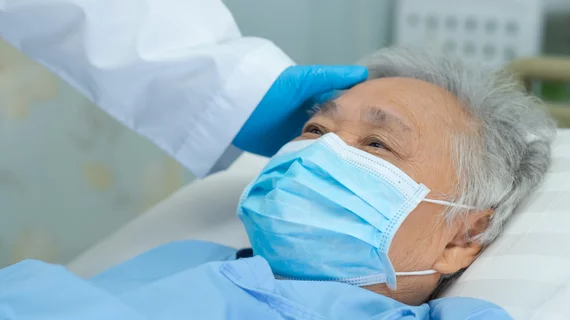Metoprolol shows promise as an effective (and cheap) treatment for critically ill COVID-19 patients
Metoprolol may provide value as a safe and effective treatment option for COVID-19 patients with acute respiratory distress syndrome (ACDS), according to new findings published in the Journal of the American College of Cardiology.
“Despite the massive worldwide impact of COVID-19, there is a shortage of effective therapies to prevent transition from moderate to severe disease and to improve prognosis,” wrote first author Agustín Clemente-Moragón, a specialist at the National Centre for Cardiovascular Research in Spain, and colleagues. “Given the intense pressure COVID-19 is placing on ICUs worldwide, there is an urgent need to identify therapies to reduce the number of days in the ICU.”
Metoprolol, a beta-blocker commonly used to treat cardiovascular disease, was given to 12 COVID-19 patients in the ICU setting from October 2020 to January 2021. An additional 8 COVID-19 patients were used as the study’s control group. Intravenous metoprolol administration included treatments of 15 mg per day for three consecutive days. Invasive hemodynamic and electrocardiogram monitoring, as well as echocardiography, was used to ensure metoprolol administration was safe for each patient. All patients also underwent bronchoalveolar lavage before and after receiving the metoprolol.
Overall, the authors found, treatment with metoprolol was associated with “reduced exacerbated lung inflammation and improved oxygenation.” They did not identify any side effects.
There was also a slight improvement in the number of days patients were on mechanical ventilation and in the ICU, but the difference was “nonsignificant.”
The team was quick to note that its sample size was small, and all patients were treated at a single facility. Another limitation was that the physicians were not blinded to which patients were receiving metoprolol and which were not. However, they added, the findings did suggest that there are potential benefits to treating some COVID-19 patients with this medication.
“Intravenous metoprolol appears as a promising intervention that could improve the prognosis of critically ill COVID-19 patients,” the authors wrote. “Although these data need to be corroborated in a larger sample, metoprolol is a clinically available and cheap drug that can improve outcomes in patients with severe COVID-19.”
Read the full evaluation here.

